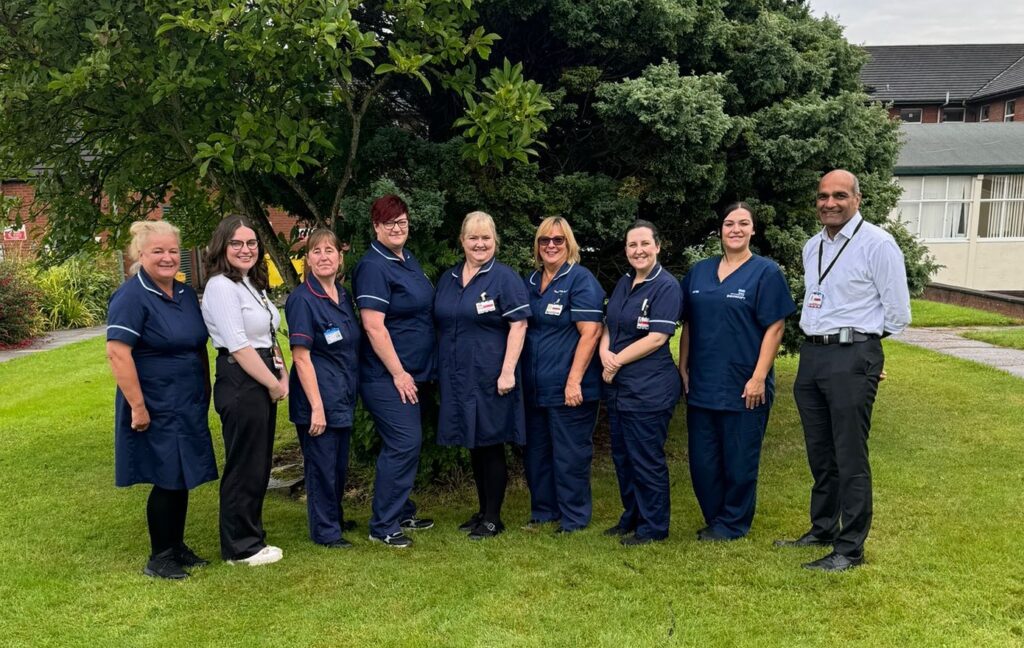Latest news
Artificial intelligence research study success at Royal Bolton Hospital

- Bolton NHS Foundation Trust part of a nationwide colonoscopy cancer detection trial using AI technology
- Study shows an 8.3% increase in the detection of cancerous cells, which could save up to 42% of lives
- Artificial intelligence equipment now used in the Endoscopy department at the hospital
Bolton NHS Foundation Trust has taken part in a major trial that uses artificial intelligence to help detect cancerous tumours during a colonoscopy.
The COLO-DETECT trial, led by South Tyneside and Sunderland NHS Foundation Trust and Newcastle University, used the GI Genius AI (artificial intelligence) device, a computer module powered by AI, which is added to the existing technology used during a colonoscopy.
The findings showed greater effectiveness in detecting tumours that could potentially become cancerous.
More than 180 patients at the Trust were recruited to this study between September 2021 and March 2023.
The AI equipment accounted for an 8·3% increase in adenoma detection, which could potentially equate to an almost 25% reduction in post-colonoscopy colorectal cancer and a 41–42% reduction in fatal cases.
The Principal Investigator, Salil Singh, is a Consultant Gastroenterologist at the trust, who worked alongside numerous research staff, gastroenterology consultants and endoscopists.
The study has resulted in the continued use of AI equipment in the Endoscopy department to detect cancers that otherwise may be missed.
Salil said:
We were one of ten UK Trusts to take part in the COLODETECT study looking at whether Artificial Intelligence could improve the detection of polyps during colonoscopy.
“Given every 1% increase in polyp detection reduces the risk of a fatal colon cancer by 5%, the identification and removal of polyps can have a dramatic effect.
“We are pleased to have seen this research published in the Lancet and to now be able to offer this service to Bolton patients.
Take a look at the many other research projects we’re involved with on our website.